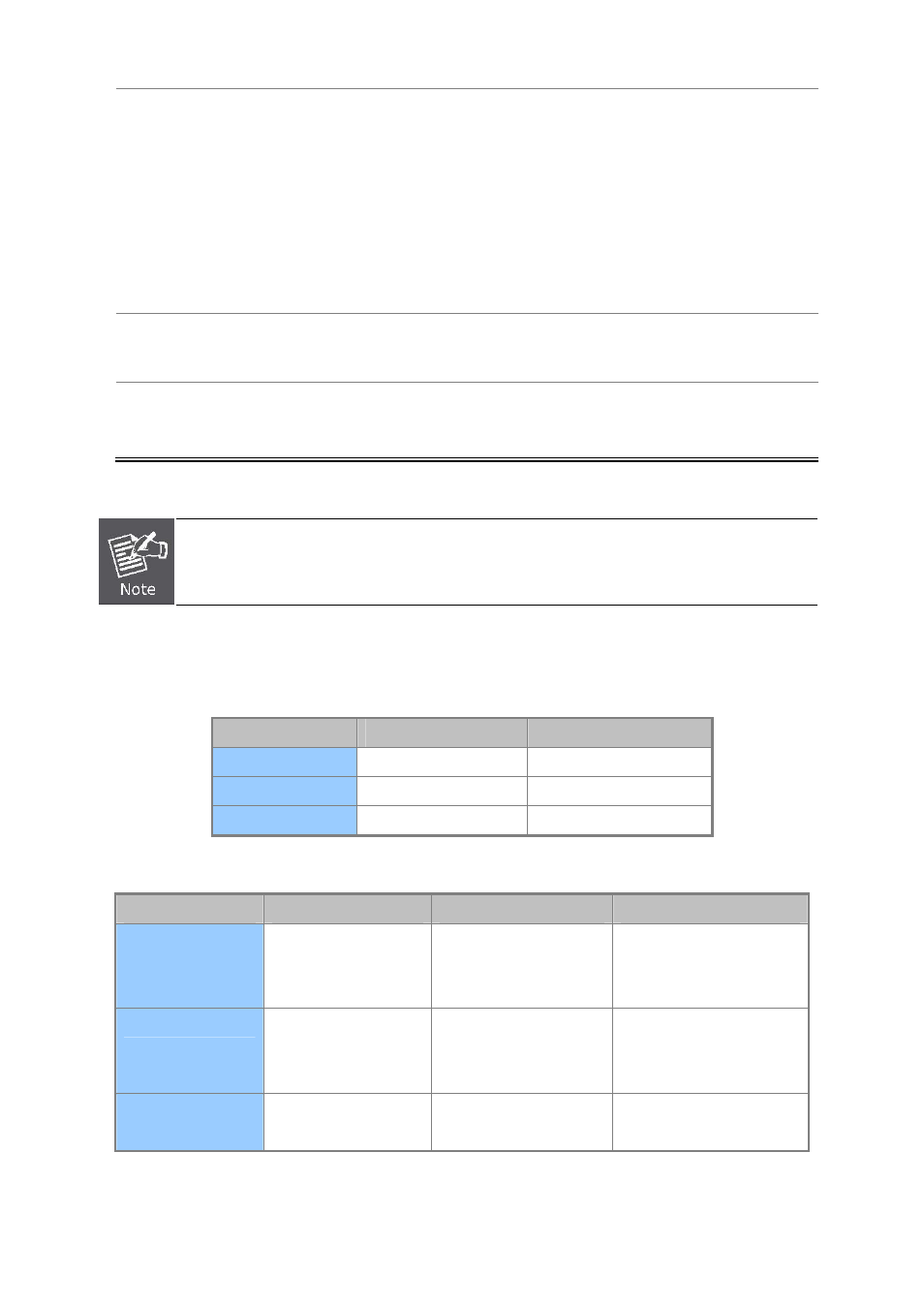PLANET FGSD-1022 User Manual
Page 98

User’s Manual of FGSD-1022 Series
Admin P2P:
The rapid state transitions possible within STP are dependent upon whether the
port concerned can only be connected to exactly another bridge (i.e. it is served
by a point-to-point LAN segment), or can be connected to two or more bridges
(i.e. it is served by a shared medium LAN segment). This function allows the P2P
status of the link to be manipulated administratively.
YES
means the port is regarded as a point-to-point link.
NO
means the port is regarded as a shared link.
AUTO
means the link type is determined by the auto-negotiation between
the two peers.
Admin Edge:
The port directly connected to end stations won’t create bridging loop in the
network. To configure the port as an edge port, set the port to “YES” status.
Admin Non STP:
The port includes the STP mathematic calculation.
YES
is not including STP mathematic calculation.
NO
is including the STP mathematic calculation.
Path cost “0” is used to indicate auto-configuration mode. When the short path cost method is selected
and the default path cost recommended by the IEEE 8021w standard exceeds 65,535, the default is set
to 65,535.
By default, the system automatically detects the speed and duplex mode used on each port, and configures the path cost
according to the values shown below.
Port Type
IEEE 802.1D-1998
IEEE 802.1w-2001
Ethernet
50-600
200,000-20,000,000
Fast Ethernet
10-60
20,000-2,000,000
Gigabit Ethernet
3-10
2,000-200,000
Table 4-5-1:
Recommended STP Path Cost Range
Port Type
Link Type
IEEE 802.1D-1998
IEEE 802.1w-2001
Ethernet
Half Duplex
Full Duplex
Trunk
100
95
90
2,000,000
1,999,999
1,000,000
Fast Ethernet
Half Duplex
Full Duplex
Trunk
19
18
15
200,000
100,000
50,000
Gigabit Ethernet
Full Duplex
Trunk
4
3
10,000
5,000
Table 4-5-2:
Recommended STP Path Costs
98
